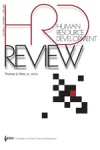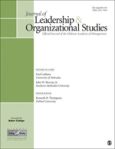Challenges in Leadership: Part 2 of 3
“Leaders must be close enough to relate to others, but far enough ahead to motivate them.” —John C. Maxwell (author, speaker, and pastor)
In 1978, James MacGregor Burns defined transformational leaders as those “who engaged with their followers in such a way that each was raised to a higher level of morality and motivation.” How are employee engagement and leadership related? Does innovation and creativity increase when employees feel they can personally identify with their leader? How can leaders meet the challenge of enhancing their employees’ well-being as well as their performance on the job?
 In their article “Examining the Role of Personal Identification With the Leader in Leadership Effectiveness: A Partial Nomological Network” (Group & Organization Management, February 2013, Weichun Zhu, Gang Wang, Xiaoming Zheng, Taoxiong Liu, and Qing Miao found that:
In their article “Examining the Role of Personal Identification With the Leader in Leadership Effectiveness: A Partial Nomological Network” (Group & Organization Management, February 2013, Weichun Zhu, Gang Wang, Xiaoming Zheng, Taoxiong Liu, and Qing Miao found that:
…transformational leadership was positively related to personal identification with the leader, which was significantly associated with followers’ innovativeness, affective organizational commitment, and turnover intention. [Read more]
 In “Employee Engagement and Leadership: Exploring the Convergence of Two Frameworks and Implications for Leadership Development in HRD” (Human Resource Development Review, June 2012), Brad Shuck and Ann Mogan Herd write:
In “Employee Engagement and Leadership: Exploring the Convergence of Two Frameworks and Implications for Leadership Development in HRD” (Human Resource Development Review, June 2012), Brad Shuck and Ann Mogan Herd write:
…leadership starts with the self. Leaders who are looking to build engaging climates should be encouraged to develop in the four domains of emotional intelligence, especially the domain of self-awareness. As the foundational domain for which the other three are developed, self-awareness is the conceptual cornerstone of emotional intelligence and in many ways of leadership that promotes the development of engagement. [Read more]
 And Fred Luthans, Carolyn M. Youssef, David S. Sweetman, and Peter D. Harms, in their paper “Meeting the Leadership Challenge of Employee Well-Being Through Relationship PsyCap and Health PsyCap” (Journal of Leadership & Organizational Studies February 2013), write:
And Fred Luthans, Carolyn M. Youssef, David S. Sweetman, and Peter D. Harms, in their paper “Meeting the Leadership Challenge of Employee Well-Being Through Relationship PsyCap and Health PsyCap” (Journal of Leadership & Organizational Studies February 2013), write:
Increasing recognition is being given to the role that employee overall well-being plays in desired outcomes of today’s organizations. To help organizational leaders searching for understanding and answers, we propose that the positive core construct of psychological capital (or simply PsyCap), consisting of the positive psychological resources of hope, efficacy, resiliency, and optimism can be extended into the well-being domain. [Read more]























































































